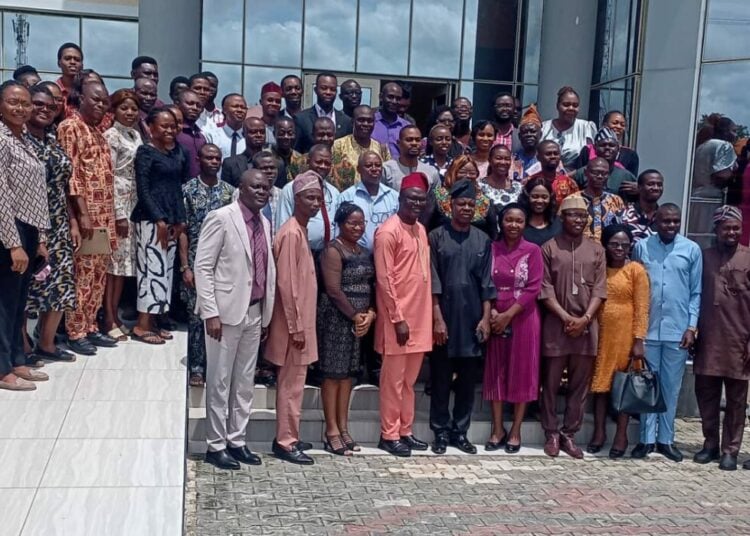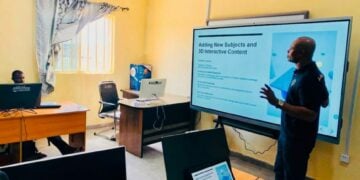Scholars have harped on the need to re-engineer and redesign entrepreneurship education in Nigerian universities to meet the desired development goal of the nation.
The experts made the call on Wednesday at Ile-Ife, Osun State, at a one-day workshop organised by De Montfort University, United Kingdom in collaboration with National Centre for Technology Management (NACETEM) and the Institute for Entrepreneurship & Development Studies of Obafemi Awolowo University, Ile-Ife.
An associate professor of entrepreneur and innovation at De Montfort University, Dr. Abiodun Egbetokun identified policy evaluation as pivotal to attain excellence in entrepreneurial education in the country.
Egbetokun noted that the workshop with the theme: “Entrepreneurship Education Policy in Nigeria: How Far, How Well, What Next,” was conceived as a platform to engage academics, policymakers, and stakeholders in discussing the crucial role of entrepreneurship education in tackling youth unemployment and promoting self-reliance in Nigeria.
According to him, the forum was organised to share knowledge, stimulate dialogue, and present long-standing research on the subject and discuss the implications of the results for policy and practice in Nigeria
Egbetokun emphasised that entrepreneurship education is not just about teaching launching or running businesses, but about cultivating the mindset and capabilities needed to create value in a world marked by uncertainty, technological disruption and rapid economic change.
He maintained that the need for entrepreneurial young people is urgent in Africa, where the world’s fastest- growing youth population is entering labour markets that cannot provide enough formal jobs.
Egbetokun added that the challenges confronting the continent was limited to unemployment but also underemployment and mismatch between graduate skills and market demands.
In his keynote address, OAU’s Dean of Faculty of Administration, Professor Rafiu Oyesola Salawu, charged the Nigerian government and institutions to go beyond rhetoric and framework to practical and measurable phase that empowers graduate to be innovators, employers and nation builders.
He contended that the next phase of entrepreneurship education must be transformative in bridging the gap between intentions and enterprise and positioning Nigeria as not only Africa’s largest economy but also as global hub of entrepreneurial talents.
Additionally, Salawu posited that education must align with Nigeria’s digital transformation agenda and sustainable development goals to remain relevant in a rapid evolving global economy.
He recommended that the progress made must be institutionalized, adding that universities and government agencies must track the progress of graduate-led enterprises for at least three years after graduation.
Salawu further advocated for curriculum reform, adding that entrepreneurship courses should be modernised to emphasise experimental learning which include product development, market validation and revenue generation.
He insisted that entrepreneurship education should be practical-based and not restricted to curriculum learning, adding that the nation’s entrepreneurship direction should be problem-driven.
Discussants at the workshop include Prof. Abimbola Fayomi, Prof. Isaac Abereijo who are both of the Institute for Entrepreneurship and Development Studies as well as Prof. Adebanjo Adedokun of the Department of Economics, all of the Obafemi Awolowo University.





